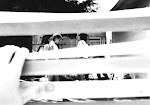
Here is the complete list (except for a couple of picture books.)
1. Rumer Godden, The Doll's House
2. Mary Stolz, A Dog on Barkham Street
3. Nathaniel Hawthorne, A Wonder Book for Boys and Girls
4. Mary Norton, The Borrowers
5. Virginia Hamilton, The Planet of Junior Brown
6. Ernest Seton, Two Little Savages
7. T.H. White, Mistress Masham's Repose
8. Margery Sharp, The Rescuers
9. Lucy Boston's Green Knowe books/Edward Eager, Half Magic
10. Robert Burch, Queenie Peavey
11. Zilpha Snyder, The Egypt Game
12. P.L. Travers, I Go by Sea, I Go by Land
13. Noel Streatfeild, Movie Shoes
14. Jean Merrill, The Pushcart War
15. Anne Lindbergh, Nick of Time
16. E. Nesbit, The Railway Children
17. Dodie Smith, I Capture the Castle
18. Lolah Burford, The Vision of Stephen
19. Richard Adams, Watership Down
20. Robert C. O'Brien, Z for Zachariah
21. Diana Wynne Jones, Dogsbody
22. Robert Lawson, Rabbit Hill
23. Rhoda Blumberg, Commodore Perry in the Land of the Shogun
24. Ursula K. LeGuin, The Wizard of Earthsea
Also a group of fairy tale books by George Dasent, Sylvia Townsend Warner and Laurence Houseman.
Like I said, you can disagree about obscure. For Perrin, I think it means not well-known to non-readers.
As I child, I read 6 of these (4,8,14,19,20,24) and I was familar with Godden, Stolz, Hamilton and Snyder as writers but read different titles by them. (Same for P.L Travers, obviously.) I also read The Railway Children and I Capture the Castle, but as an adult.
Discovering this book in the library sent me to catalog looking for all those books I missed. Some I never found. The Vision of Stephen, which is a kind of historical fantasy, is, I think, the most completely obscure. I Go by Sea, I Go by Land, which the diary of a WWII evacuee sent to the US, has also not been back in print in a long time, and none of the libraries here had it. I found the Green Knowe books easily, and the Half Magic series. The Planet of Junior Brown turned out to be kind of weird but good. Mary Stolz is one of those mid-century children's writers whose excellence cannot be praised high enough. I'm afraid I never looked for Hawthorne or Seton or re-read Watership Down.
I have to thank Perrin tremendously for 8 and 21, though. I hunted them down and eventually acquired two paperback copies of Mistress Masham's Repose, while Diana Wynne Jones has become one of my all-time favorite writers. Dogsbody is one of her early works and is now out of print but my library has a beat-up paperback copy. And I realize, looking back over the list, that I never followed up with 13 or 15. Back to the library catalog...
Has anyone else remembered or encountered any of these books? I love stories about how people came to find favorite books. (For instance, how I, who didn't like science fiction as a child, came to read The Wizard of Earthsea -- but I'll leave that for another post.)














